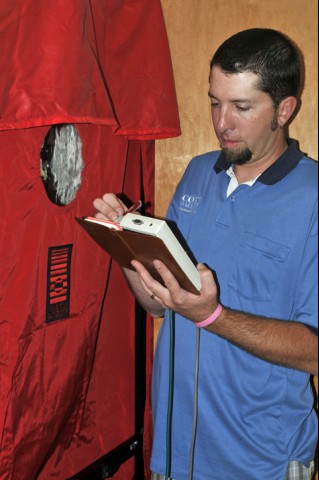What is Geothermal Heating?
What is Geothermal Energy?
A geyser spraying over 100 feet into the air is not just a fun sight on a summer vacation trip to Yellowstone; it is also a natural exhibition of what is geothermal energy in action. Geothermal energy is a form of energy that is naturally created and stored in the earth. The earth’s core is incredibly hot – several thousand degrees, in fact – and that heat naturally radiates to the surface of our planet.
It is possible to harness that energy for above ground applications, although some regions are more suitable than others for tapping into this source of natural power and heat – especially on a large scale. There is geothermal heating to extract the earths heat to use for heating and air condition of a home. There is also geothermal power that can produce electricity as well. When discussing what is geothermal energy and how it can be applied to household use, there are a couple of options to consider.
For smaller applications, the harnessing of what is geothermal energy can be a clean, renewable source of energy that is always available. According the U.S. Environmental Protection Agency (EPA) geothermal heat pumps are the most energy efficient and environmentally clean systems for temperature control.
Natural hot springs have been used for centuries as a source of hot water and heating, but you probably don’t have one bubbling up in your back yard. That same source of energy that heats up the water in a hot spring is available and can be used for home heating purposes.
Utilizing what is geothermal energy for home use is a fairly simple process. A closed loop system is the most common and economical way to capture the heat from the earth and transfer it into a home. This method uses coils that are placed into the ground either vertically or horizontally below the frost line where the temperature is always constant.
Water is drawn from the home and into a geothermal unit, which can be used for both heating and cooling purposes. The reduction in fuel costs and savings will eventually pay for the initial instillation costs and continue to provide low cost heating for the home.
The big plus when using geothermal energy is that it does not require the use of fuel to power the system. Essentially, you are harvesting existing heat from the earth, not creating it.
Getting started on a project that takes advantage of geothermal energy can be as simple as placing a call to a qualified energy contractor. Certified professionals will provide you with the information and services you need to create an energy efficient solution for your home.
Taking advantage of a free energy source provided by Mother Nature in the form of geothermal energy will provide you with a constant supply of warmth and lower your utility costs all year long.
Energy Basics
Several geothermal power plants at The Geysers.
Geothermal energy—geo (earth) + thermal (heat)—is heat energy from the earth.
What is a geothermal resource?
Geothermal resources are reservoirs of hot water that exist at varying temperatures and depths below the Earth's surface. Mile-or-more-deep wells can be drilled into underground reservoirs to tap steam and very hot water that can be brought to the surface for use in a variety of applications, including electricity generation, direct use, and heating and cooling. In the United States, most geothermal reservoirs are located in the western states.
Geothermal energy is a vast underutilized heat and power resource that is renewable, baseload, domestic and clean.
Benefits of Geothermal Energy
Renewable—Through proper reservoir management, the rate of energy extraction can be balanced with a reservoir's natural heat recharge rate.
Baseload—Geothermal power plants produce electricity consistently, running 24 hours per day / 7 days per week, regardless of weather conditions.
Domestic—U.S. geothermal resources can be harnessed for power production without importing fuel.
Small Footprint—Geothermal power plants are compact; using less land per GWh (404 mi2) than coal (3642 mi2) wind (1335 mi2) or solar PV with center station (3237 mi2).*
Clean—Modern closed-loop geothermal power plants emit no greenhouse gasses; life cycle GHG emissions (50 g CO2 eq/kWhe) are four times less than solar PV, and six to 20 times lower than natural gas. Geothermal power plants consume less water on average over the lifetime energy output than the most conventional generation technologies.
Jon Howes
Professionally Certified

BPI Certified Building Analysts
RESNET Certified HERS Rater
RRP - Certified Lead Paint Renovator
Colorado Energy Analysts
Certified Energy Rater
Scott Homes, Ltd., Designers & Builders
Construction Superintendent
 |
 |
 |
Schedule An Inspection
By Phone or Email we can schedule the services you desire to begin saving money on your utility bills!
Contact Us Online
Email us at info@ColoradoEnergyAnalysts.com
© Copyright 2013-2025 - Colorado Buys Local Inc | Designed for Colorado Energy Analysts